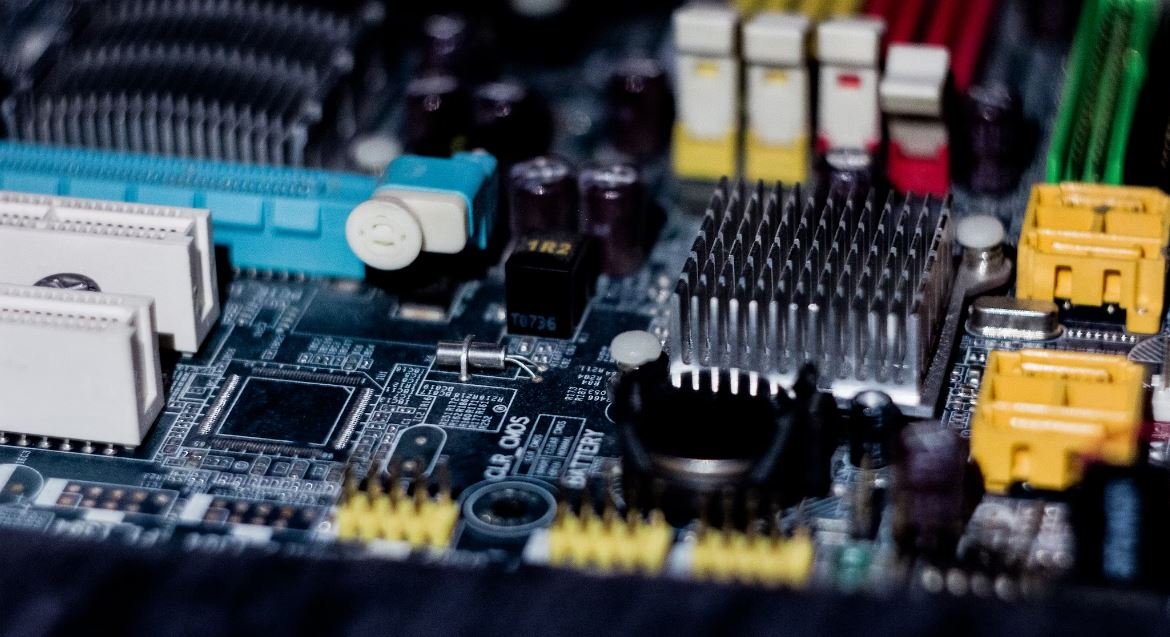Introduction:
AI automation has been a hot topic in recent years, with many questions arising about its impact on employment. As artificial intelligence continues to advance at an unprecedented pace, it is important to understand the relationship between AI automation and employment to better prepare for the future of work.
Key Takeaways:
– AI automation is reshaping the labor market by replacing repetitive and mundane tasks, leading to significant changes in job roles.
– While AI automation may lead to job displacement in certain sectors, it also opens up new opportunities and creates new job roles.
– The integration of AI automation into the workforce requires upskilling and reskilling of employees to ensure they can adapt to the changing job market.
AI Automation and Job Displacement:
AI automation is increasingly taking over routine and repetitive tasks, leading to concerns about job displacement. However, studies suggest that the impact of automation on employment is more nuanced. According to a report by McKinsey, **”about 60% of all occupations have at least 30% of their activities that can be automatable.”** This implies that while some job functions may be automated, **human intervention, creativity, and decision-making are still essential** in many industries.
New Job Opportunities:
While some job roles may become obsolete due to AI automation, new opportunities emerge in sectors that utilize AI capabilities. For instance, **data scientists** and **AI engineers** are in high demand to develop, optimize, and maintain AI systems. Additionally, professions such as **AI trainers** and **ethics consultants** have emerged to ensure responsible and ethical use of AI. The rising demand for these specialized roles highlights the potential for job creation alongside automation.
Upskilling and Reskilling:
To embrace the changing job market, individuals and organizations must prioritize upskilling and reskilling efforts. Upskilling involves acquiring new skills and knowledge to enhance existing job skills, while reskilling refers to learning entirely new skills for a different role. *Companies that invest in reskilling their workforce** are better equipped to adapt to the changing demands of AI automation. Additionally, **individuals who actively engage in lifelong learning** increase their employability and ability to navigate the evolving job market.
Impact on Industries:
AI automation is not limited to a single sector but is transforming various industries. Let’s take a closer look at some industries and how AI automation is impacting them:
1. Healthcare:
– AI-powered diagnosis systems can analyze medical data and assist doctors in providing faster and accurate diagnoses.
– Medical imaging analysis algorithms can expedite the interpretation of X-rays, MRIs, and CT scans.
– Robotic surgery systems are being developed to assist surgeons with precision and efficiency.
2. Manufacturing:
– Automation enables the use of robots in assembly lines, reducing production costs and improving efficiency.
– Predictive maintenance algorithms detect equipment failures before they occur, minimizing downtime.
3. Customer Service:
– AI chatbots provide real-time customer support, reducing wait times and improving customer satisfaction.
– Sentiment analysis helps companies understand customer feedback and preferences, allowing for better service customization.
Conclusion:
AI automation is undoubtedly transforming the employment landscape, leading to concerns about job displacement. However, the integration of AI into the workforce also brings new opportunities and job roles. As industries adapt to this automation revolution, investing in upskilling and reskilling is crucial. By understanding the potential of AI automation and harnessing its benefits, we can embrace the changing job market and prepare ourselves for the future of work.

Common Misconceptions
Misconception 1: AI automation will replace all jobs
One of the common misconceptions about AI automation is that it will completely replace human jobs, leading to mass unemployment. However, this is not entirely true. While AI technology can automate certain tasks and roles, it is unlikely to replace jobs that require creativity, critical thinking, and complex decision-making skills.
- AI automation is more suitable for repetitive and mundane tasks
- Jobs requiring emotional intelligence and social interaction are less likely to be affected by AI
- Humans can leverage AI as a tool to enhance their productivity and skills
Misconception 2: AI will cause job losses on a large scale
Another common misconception is that AI automation will lead to widespread job losses. While it’s true that certain positions may become redundant due to automation, history has shown that technological advancements often create new job opportunities. AI has the potential to create new industries and transform existing ones, leading to a different set of jobs and skills requirements.
- New jobs like AI trainers and explainability experts will emerge
- AI can create higher-skilled jobs by augmenting human capacities
- Automation can free up human workers to focus on more strategic and value-added tasks
Misconception 3: AI automation will only affect blue-collar jobs
There is a misconception that AI automation only impacts low-skilled blue-collar jobs. While it’s true that AI can automate manual tasks in industries like manufacturing and logistics, it also has the potential to impact white-collar professions. AI technology can assist professionals by analyzing large volumes of data, providing insights, and automating routine tasks.
- AI can analyze legal documents and assist lawyers in their research
- Journalists can leverage AI to gather information and create news reports
- Financial advisors can use AI-powered tools for investment analysis and client recommendations
Misconception 4: AI automation will lead to overall economic decline
Some people fear that widespread adoption of AI automation could lead to economic decline and inequality. This fear stems from the assumption that automation will destroy jobs faster than new ones are created. However, history has shown that technological advancements and increased productivity can lead to economic growth, improved living standards, and the creation of new industries.
- AI automation can drive economic growth through increased efficiency and productivity
- There is potential for job expansion in industries leveraging AI technology
- Policy measures can be implemented to minimize any negative impact and ensure a just transition
Misconception 5: Humans will lose control over AI automation
There is a misconception that AI automation will gain full control and exceed human capabilities, leading to a loss of control over the technology. While AI systems can process vast amounts of data and perform complex tasks, they are ultimately designed and programmed by humans. Humans hold the responsibility for setting the boundaries, ethics, and regulations for AI automation.
- Human oversight is essential to ensure ethical AI practices
- AI systems require human programming and continuous monitoring
- Robust governance frameworks can be established to maintain human control over AI

Job Losses Due to AI Automation in Different Sectors (2015-2020)
According to a report by the International Labor Organization, the implementation of AI automation has led to significant job losses across various sectors. The table below highlights the number of jobs lost due to AI automation in different sectors from 2015 to 2020.
| Sector | Job Losses |
|---|---|
| Manufacturing | 3,000,000 |
| Retail | 1,800,000 |
| Transportation | 1,300,000 |
| Banking and Finance | 800,000 |
Percentage of Employees Who Feel Their Jobs are at Risk
A recent survey conducted among employees in different industries reveals the level of perceived job insecurity due to AI automation. The table below displays the percentage of employees in various sectors who feel their jobs are at risk.
| Sector | Job Insecurity Percentage |
|---|---|
| Customer Service | 56% |
| Administrative Support | 42% |
| IT and Tech | 34% |
| Healthcare | 27% |
Distribution of AI Automation Technologies in Different Industries
The degree of AI automation implementation across industries varies. The table below showcases the distribution of different AI automation technologies across various sectors.
| Sector | Distribution of AI Automation Technologies |
|---|---|
| Manufacturing | 45% Robotic Process Automation (RPA), 25% Machine Learning (ML) |
| Finance | 30% AI Chatbots, 15% Natural Language Processing (NLP) |
| Transportation | 50% Autonomous Vehicles, 20% Predictive Maintenance |
| Healthcare | 35% AI-Powered Diagnosis, 30% Patient Monitoring Systems |
Global GDP Growth and AI Adoption
The adoption of AI automation has a notable impact on global economic growth. The table below presents the correlation between the worldwide GDP growth rate and the adoption of AI automation in recent years.
| Year | GDP Growth Rate | AI Adoption Rate |
|---|---|---|
| 2015 | 2.8% | 5% |
| 2016 | 3.1% | 7% |
| 2017 | 3.3% | 10% |
| 2018 | 2.9% | 13% |
AI Automation and Worker Productivity Increase
AI automation can greatly enhance worker productivity. The following table displays the percentage increase in productivity observed after implementing AI automation in different sectors.
| Sector | Productivity Increase Percentage |
|---|---|
| Customer Service | 14% |
| Manufacturing | 20% |
| Healthcare | 12% |
| Finance | 18% |
AI Automation Job Creation by Industry
While AI automation results in job losses, it also creates new employment opportunities. The table below depicts the number of jobs created in various industries due to AI automation.
| Sector | Job Creation |
|---|---|
| Information Technology | 2,500,000 |
| Healthcare | 1,200,000 |
| E-commerce | 1,800,000 |
| Education | 900,000 |
Skills in Demand in AI-Driven Industries
The rise of AI automation has changed the skill requirements in different industries. The table below highlights the skills in demand in AI-driven sectors.
| Sector | In-Demand Skills |
|---|---|
| Data Science | Machine Learning, Data Analysis, Statistics |
| Robotics | Mechatronics, Computer Vision, Programming |
| Cybersecurity | Network Security, Ethical Hacking, Secure Coding |
| Digital Marketing | SEO, Social Media Management, Digital Analytics |
AI Automation Implementation Challenges
Implementing AI automation in industries can present various challenges. The table below outlines the top challenges faced during the implementation of AI automation.
| Challenge | Percentage of Respondents Reporting Challenge |
|---|---|
| Lack of Skills and Expertise | 62% |
| Integration with Legacy Systems | 48% |
| Data Privacy and Security Concerns | 39% |
| Resistance from Employees | 28% |
Impact of AI Automation on Average Salaries
The automation of certain roles due to AI can have differing effects on average salaries. The following table shows the change in average salaries in various sectors after implementing AI automation.
| Sector | Average Salary Change (%) |
|---|---|
| Finance | +6.7% |
| Manufacturing | -3.2% |
| IT and Tech | +10.2% |
| Healthcare | -1.8% |
AI automation is rapidly transforming industries, leading to both job losses and job creation. While certain sectors experience significant challenges in implementing AI automation, others witness substantial productivity gains. The skills in demand are shifting, and the effects on average salaries vary across different industries. Navigating this era of AI automation calls for strategic and adaptable approaches to ensure a sustainable and inclusive future workforce.
Frequently Asked Questions
What is AI Automation?
AI Automation refers to the use of artificial intelligence (AI) technologies and computer systems to automate tasks that would otherwise be performed by humans. It involves the application of machine learning, robotics, natural language processing, and other AI techniques to enhance efficiency and productivity in various industries.
How does AI Automation impact employment?
AI Automation has the potential to significantly transform the job market. While it can eliminate certain repetitive and mundane tasks, it also opens up new opportunities and creates new jobs that are related to the development, maintenance, and oversight of AI systems. The overall impact on employment is complex and varies across industries.
What are the advantages of AI Automation in the workplace?
AI Automation can bring several benefits to the workplace, including increased efficiency, reduced errors, improved accuracy, faster decision-making, cost savings, and the ability to handle vast amounts of data. It can also free up human workers to focus on more creative and complex tasks that require higher-order thinking skills.
Can AI Automation replace human workers?
AI Automation can replace specific tasks and job functions, but it is unlikely to completely replace human workers in most industries. While AI systems excel at processing large amounts of data and performing repetitive tasks, they currently lack the ability to fully replicate human intuition, empathy, creativity, and critical thinking skills, which are highly valuable in many job roles.
Are there any industries that are more susceptible to AI Automation?
Industries that involve routine manual or cognitive tasks are generally more susceptible to AI Automation. This includes sectors such as manufacturing, transportation, customer service, data entry, and certain aspects of healthcare. However, it is important to note that AI Automation can also augment human capabilities and create new opportunities in these industries.
What job roles are likely to be impacted by AI Automation?
Job roles that primarily involve repetitive and predictable tasks are most likely to be impacted by AI Automation. This includes positions like assembly line workers, customer service representatives, data entry clerks, and drivers. However, many job roles will undergo changes and require workers to adapt by acquiring new skills that complement AI technologies.
How can workers prepare for the impact of AI Automation?
To prepare for the impact of AI Automation, workers can focus on developing skills that are difficult to replicate by AI systems, such as critical thinking, problem-solving, emotional intelligence, adaptability, creativity, and leadership. Lifelong learning and continuous upskilling will be crucial in remaining competitive in the evolving job market.
What are the ethical considerations surrounding AI Automation?
AI Automation raises important ethical considerations that need to be addressed. These include issues related to job displacement, privacy and security concerns, algorithm bias, accountability, and the potential for AI systems to reinforce existing inequalities. It is essential for organizations, governments, and society as a whole to navigate these ethical challenges responsibly.
How can AI Automation be implemented responsibly?
To implement AI Automation responsibly, it is necessary to prioritize transparency, fairness, accountability, and human well-being. Organizations should invest in thorough testing and validation of AI systems, establish clear guidelines for the responsible use of AI technologies, and consider the ethical implications at all stages of development and deployment.
What is the future outlook for AI Automation and employment?
The future outlook for AI Automation and employment is a topic of ongoing debate and speculation. While AI has the potential to impact job roles, it is also expected to create new job opportunities and generate economic growth. It is essential for society to proactively adapt to these changes and ensure that the benefits of AI Automation are distributed equitably.





